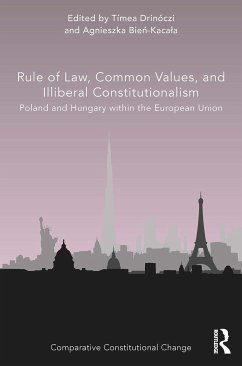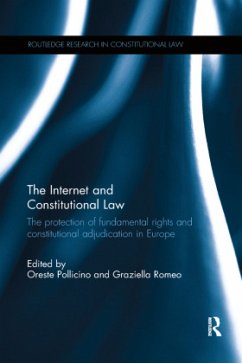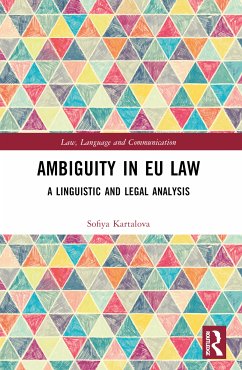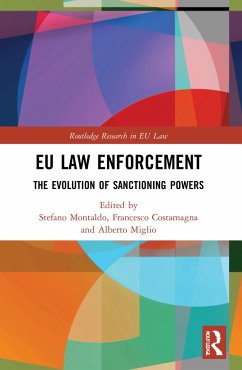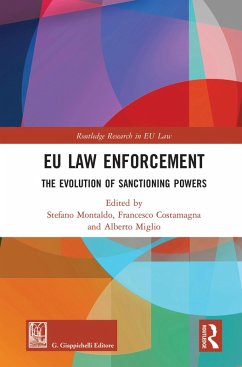
National Courts and the Application of EU Law
Lessons from Poland

PAYBACK Punkte
72 °P sammeln!
This book presents the case law of Polish courts, namely the Supreme Court, administrative courts and the Constitutional Tribunal, in which the principles of EU law have been successfully applied. It discusses how Polish courts apply principles of consistent interpretation, primacy and direct effect of EU law in their daily adjudicating practice in order to ensure effet utile of EU law, resulting in effective protection of individuals' rights derived from the EU legal order. The book explores the legal nature of these principles and, in particular, the requirement that national rules that are ...
This book presents the case law of Polish courts, namely the Supreme Court, administrative courts and the Constitutional Tribunal, in which the principles of EU law have been successfully applied. It discusses how Polish courts apply principles of consistent interpretation, primacy and direct effect of EU law in their daily adjudicating practice in order to ensure effet utile of EU law, resulting in effective protection of individuals' rights derived from the EU legal order. The book explores the legal nature of these principles and, in particular, the requirement that national rules that are found to be incompatible with legally binding and enforceable EU law should be disapplied by the domestic courts. It explains Polish courts' reasoning concerning the inseparable relationship between the principle of primacy of EU law and the remedy of disapplication of national law. As the guidelines provided for the national courts by the Court of Justice of the European Union are oftenquite vague, the work will be important and useful for academics and practitioners from different European jurisdictions to observe the manner in which these principles of EU law are applied in jurisdictions other than their own.
The Open Access version of this book, available at http://www.taylorfrancis.com, has been made available under a Creative Commons Attribution (CC BY) 4.0 license.
The Open Access version of this book, available at http://www.taylorfrancis.com, has been made available under a Creative Commons Attribution (CC BY) 4.0 license.







